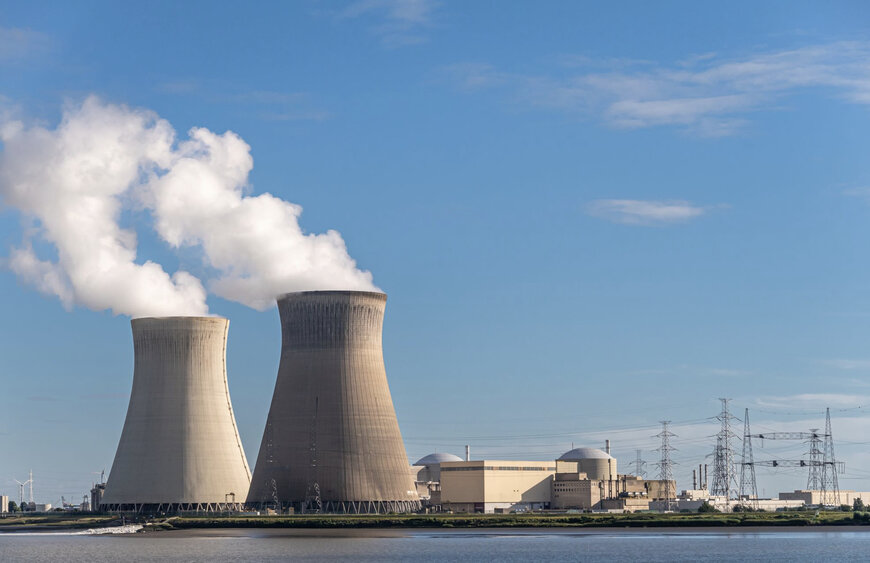ABB Supports ENGIE in Extending the Life of Belgium’s Doel 4 Nuclear Power Plant
ENGIE’s modernization of the Doel 4 plant uses ABB’s retrofitting solutions to boost safety, ensure operational reliability, minimize downtime, and secure Belgium’s energy supply through 2035.
global.abb

ABB is partnering with French electrical utility company, ENGIE SA, to critically improve the long-term safety and reliability of a nuclear power plant operated by its Belgian subsidiary Electrabel SA. Intended to secure the plant’s operations for the next decade, the ambitious asset modernization and retrofitting project is critical to safeguarding Belgium’s energy security. The order was booked in the fourth quarter of 2024 and financial details were not disclosed.
Located near Antwerp, the Doel 4 nuclear power plant was first commissioned in 1985. Originally scheduled to be decommissioned by the end of 2025, European market conditions led to a 10-year extension of its life, requiring a significant re-evaluation of its existing electrical assets. With much of the electrical switchgear at the plant now obsolete, Electrabel approached the ABB Electrification Service team for a solution to ensure that it would operate safely and sustainably for the next decade.
Through ABB’s Advisory proposition, the Electrification Service team leveraged its industry-leading engineering expertise, taking a consultative approach to this challenge. This involved conducting a holistic assessment and analysis of various aspects of the Doel 4 power plant, including its installed base, in order to future-proof its operations.
Following this, the ABB team recommended a full Power System Study alongside a mix of retrofitting and replacing obsolete 6.6 kV switchgear. Six switchboards will be retrofitted with new circuit breakers and three will be replaced entirely with new Unigear ZS1 units. A total of 76 circuit breakers will be replaced with ABB VD4 breakers using the latest vacuum technology.
In addition to solving space constraint issues, the decision to retrofit rather than replace the entire switchgear kept downtime and disruption to a minimum and ENGIE would be able to further advance its decarbonization goals. More than half of electrical equipment, such as metal switchgear cabinets, steel plates and busbars, can be used for long periods without being replaced if outdated components such as circuit breakers, relays and internal components are upgraded, regularly monitored and maintained.
ABB Electrification Service Project Manager, Ismail Touzani, explained: “Choosing to retrofit made operational sense for this project but it also supports the circular economy, keeping products and materials in use for as long as possible and reducing resource dependency.”
“Of course, the overriding priority for this project is safety. Not only was the switchgear approaching the end of its nuclear qualified lifespan, but spare parts are increasingly obsolete making it difficult to maintain and service properly,” added Touzani. “The new and retrofitted equipment will all undergo stringent nuclear qualification testing to ensure safe and reliable operation for the rest of the plant’s working life.”
ABB’s partnership with ENGIE stands testament to its commitment to supporting the power and utilities sectors in their decarbonization journeys. Low-carbon energy sources, such as nuclear, play a crucial role in helping countries and industries achieve their decarbonization goals while ensuring a stable energy supply.
As plants continue to age, ABB is committed to supporting operators to ensure the long-term safety and viability of their operations. In these situations, having the data and intelligence required to take a more predictive approach to maintenance is key. This is especially vital in nuclear power plants, where the risk of downtime or any form of equipment breakdown can have significant consequences – not only in terms of cost, but also safety.
www.abb.com

